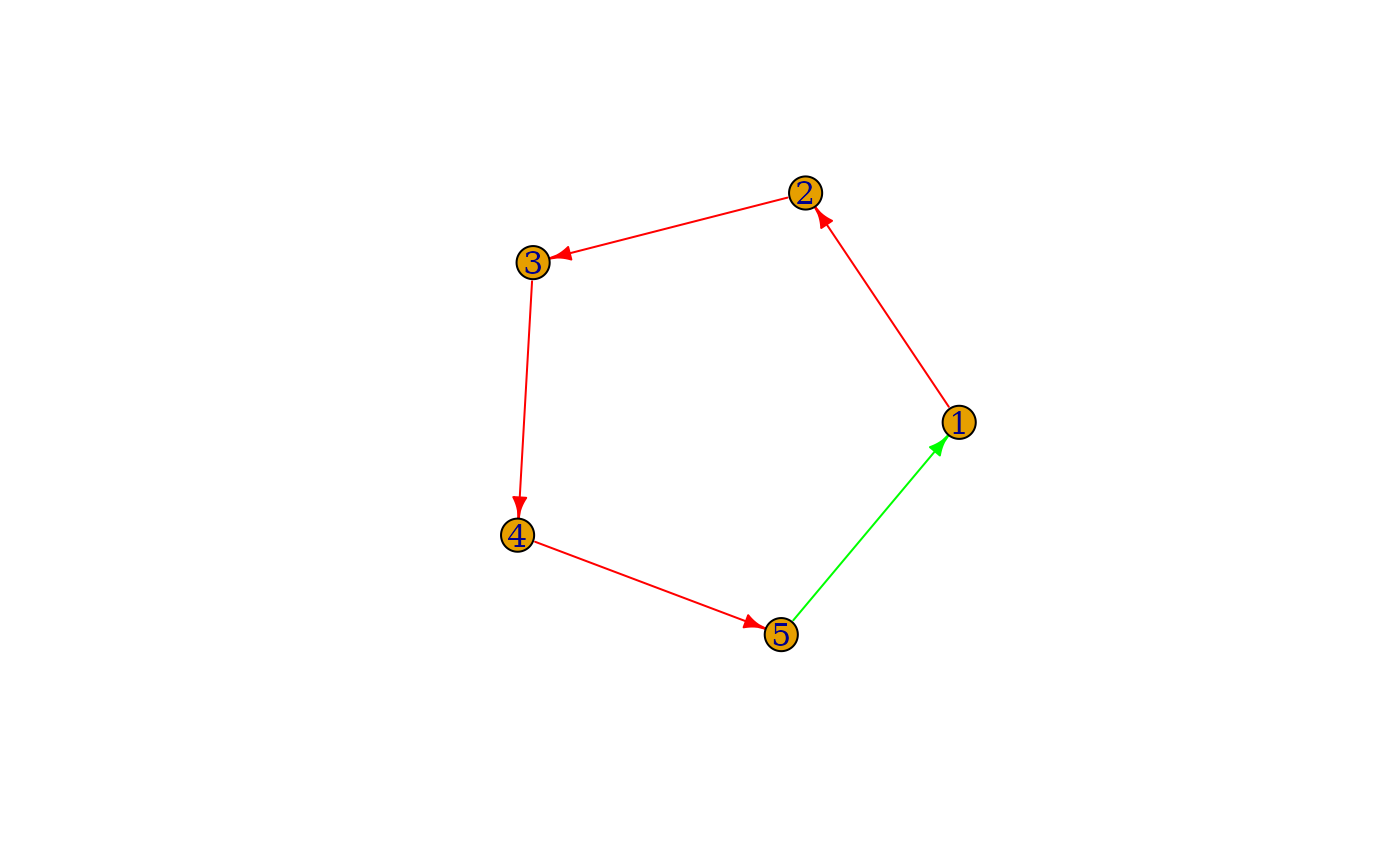The new edges are given as a vertex sequence, e.g. internal
numeric vertex ids, or vertex names. The first edge points from
edges[1] to edges[2], the second from edges[3]
to edges[4], etc.
Usage
add_edges(graph, edges, ..., attr = list())Arguments
- graph
The input graph
- edges
The edges to add, a vertex sequence with even number of vertices.
- ...
Additional arguments, they must be named, and they will be added as edge attributes, for the newly added edges. See also details below.
- attr
A named list, its elements will be added as edge attributes, for the newly added edges. See also details below.
Details
If attributes are supplied, and they are not present in the graph,
their values for the original edges of the graph are set to NA.
See also
Other functions for manipulating graph structure:
+.igraph(),
add_vertices(),
complementer(),
compose(),
connect(),
contract(),
delete_edges(),
delete_vertices(),
difference(),
difference.igraph(),
disjoint_union(),
edge(),
igraph-minus,
intersection(),
intersection.igraph(),
path(),
permute(),
rep.igraph(),
reverse_edges(),
simplify(),
union(),
union.igraph(),
vertex()
Examples
g <- make_empty_graph(n = 5) %>%
add_edges(c(
1, 2,
2, 3,
3, 4,
4, 5
)) %>%
set_edge_attr("color", value = "red") %>%
add_edges(c(5, 1), color = "green")
E(g)[[]]
#> + 5/5 edges from 1d6a330:
#> tail head tid hid color
#> 1 1 2 1 2 red
#> 2 2 3 2 3 red
#> 3 3 4 3 4 red
#> 4 4 5 4 5 red
#> 5 5 1 5 1 green
plot(g)
